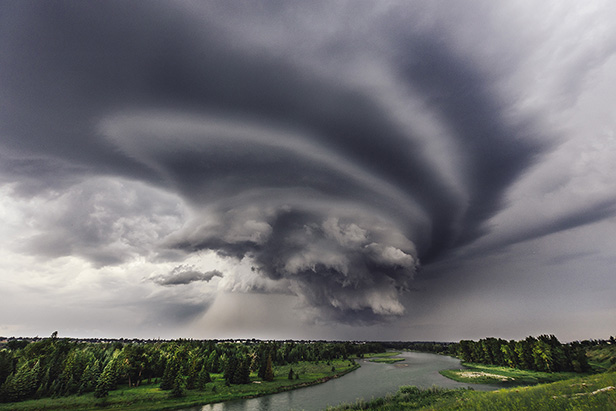
With Nova Scotia's Department of Natural Resources and Renewables confirming an out of control forest fire southeast of Weymouth, Nova Scotia, and an ongoing fire in Shelburne County, Insurance Bureau of Canada (IBC) is reminding residents in Atlantic Canada to stay alert and be prepared for the possibility that disaster could strike this wildfire season.
“With dryer than normal conditions across Atlantic Canada, there is an increased risk of wildfire this season. It’s important to be prepared, as wildfires can spread quickly and residents in impacted areas may have only moments to act,” said Amanda Dean, Vice-President, Atlantic, IBC. “Wildfires are a real and present danger, especially if you live in a heavily forested area. However, there are steps you can take to help protect your family, your home and your business.”
Individuals impacted by wildfires are encouraged to contact IBC’s Consumer Information Centre at 1-844-2ask-IBC (1-844-227-5422). Staff are available to help address consumers' general questions about their home, business or automobile insurance policies. Residents in Atlantic Canada can also visit IBC's Wildfires webpage to learn more about insurance coverage and the various stages of the claims process.
IBC’s Top 10 Wildfire Safety and Prevention Tips:
- Stay informed about the weather. Weather forecasts are vital to being prepared for a potential wildfire.
- Pay attention to fire danger ratings. Take note of and obey fire prohibitions and restrictions to know the likelihood of, and prevent wildfire igniting in your region. Check local government's website for more information. Residents should also dispose of all smoking materials appropriately.
- Install and regularly maintain smoke alarms. Remove dust, replace batteries when the clocks change in spring and fall, test regularly and replace at least every 10 years.
- Prepare your home. Check that your home's roof, its exterior walls and undersides of balconies are treated with flame-resistant materials.
- Properly store flammable materials. Store gasoline, solvents, waste or other materials that may ignite at least 10 metres away from your home.
- Remove dry leaves and debris. Keep leaves, other dry materials and potentially flammable garbage away from the exterior of the house, especially if you have wood or vinyl siding.
- Manage space around your home. Remove combustible material such as shrubs, trees and woodpiles within 10 metres of your home.
- Create an emergency preparedness plan and a disaster safety kit for your family. Develop a fire evacuation plan, practice executing that plan and stick to it in an emergency. And, prepare a basic kit of food, water and other necessities that will last at least 72 hours in an emergency.
- Prepare and update a home inventory. Make a list of what you own, including the value of each item, take photos or video and update the list regularly.
- Keep your insurance policy number and insurance company claims department phone number with you. In the event you are evacuated, you could qualify for additional living expense (ALE) coverage.

